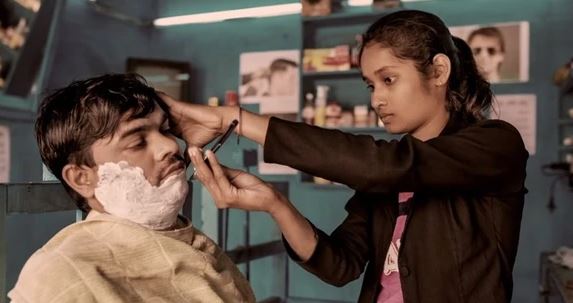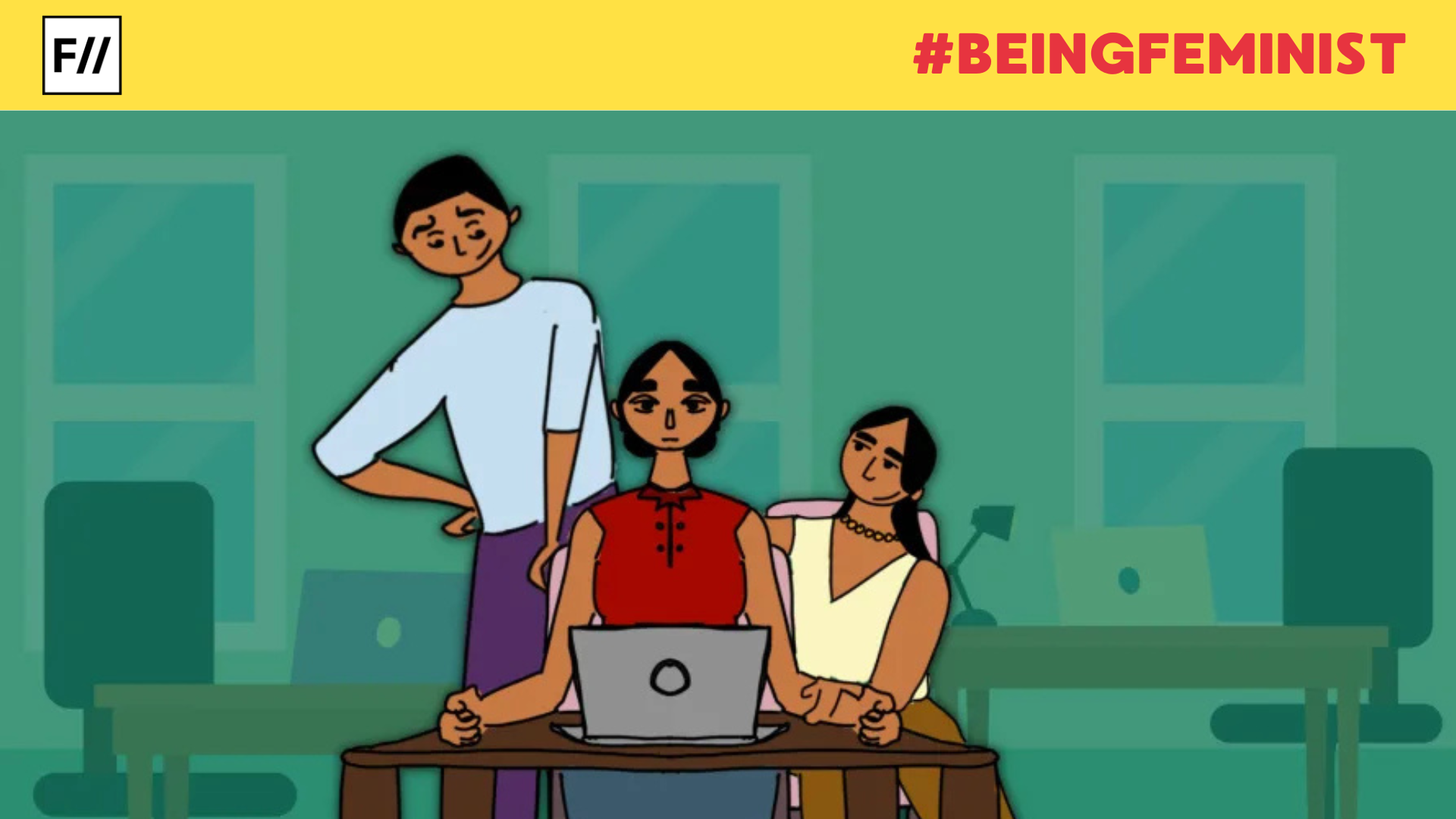The new Gillette #ShaveStereotype ad campaign features the story of Jyoti and Neha, better known as the ‘barbershop girls of India’ whose father’s illness drove them towards taking up his occupation as the local barber in the village of Banwari Tola in Uttar Pradesh. The ad, narrated by a little boy depicts the social milieu of the village, which can be a stand-in for any North Indian village, with a very apparent and ingrained demarcation between the men and women and the roles they are ascribed. While women are supposed to do the household chores – fetching water, cooking food, making uplas (dung cakes), men take up the foregrounded public roles. What is of central concern here is the question of inheritance.
Also read: The Hue And Cry About The Gillette Commercial
As the sohar, which is a celebratory song sung at the birth of a baby boy playing in the background also indicates, it is the male child of the family who is to inherit the family occupation. This is what the ad seeks to contend. The girls in the barbershop have apparently inherited their father’s business. The boy perturbed by the sight of women-barbers asks his father if a girl can even use an ustura (shaving knife). The father responds by saying that the ustura doesn’t care if it’s wielded by a man or a woman and therefore, they should not care either.
Within the nai (barber) community, womenfolk were allowed to wield the blades to clip the nails of upper caste women and not beyond.
The sohar’s lyrics changes – it now blesses the babunia (the girl child) instead of the lalanwa (the boy child). This is the moment of climax in the ad. It marks the shift within the society triggered by the transgression of the barbershop girls which now makes it possible for women to inherit their father’s occupation as well as occupy public spaces.
This transition, however, was not as smooth as we are shown. In the beginning, Jyoti and Neha had to cross-dress as men and go by male names in order to retain their customers. What is also less apparent in the ad is the implied progression of caste norms, alongside gender norms. Within the nai (barber) community, womenfolk were allowed to wield the blades to clip the nails of upper caste women and not beyond. The story of Neha and Jyoti is of dual significance in the subversion of Brahminical patriarchy.
Gillette is one of the go-to brand of razors for Indian women which makes this erasure of women from their movement to shave off stereotypes all the more shocking.
The #ShaveStereotype ad campaign in India comes as an extension of the global #WeBelieve campaign which found itself amidst a huge controversy soon after its release. As a Post #MeToo campaign, the #WeBelieve ad called out the culture of toxic masculinity in the American society, urging men to take up the responsibility of its eradication and asking them to shave off their toxicity towards each other and women to become “the best a man can get”. Now, the ad divided the netizens into a large number of people criticising them for forcing their brand of feminism upon them, and those who commend them for speaking up against what is a global cultural problem today.
The ad, however, ends by thanking Jyoti and Neha and the villagers of Banwari Tola for inspiring the next generation of men. In doing this, it forgets to inculcate the effects of transgression on the lives of the womenfolk in the village. Women shave patriarchy off men but they cannot shave themselves in public. They have to do it in hiding, with pink razors and hot towels.
Also read: How Gillette Made Me Revisit The Toxic Masculinity In My Past
Gillette is one of the go-to brands of razors for Indian women which makes this erasure of women from their movement to shave off stereotypes all the more shocking. The segregation of male and female consumers, not only in their products, but also the ads makes one question their politics behind the commercial, and also their commercialization of politics.
Featured Image Source: Livemint
About the author(s)
Megha is a 20-something English graduate who still hasn’t figured out how to pronounce ‘genre’ and fills her void with self-made memes and overpriced pasta.




